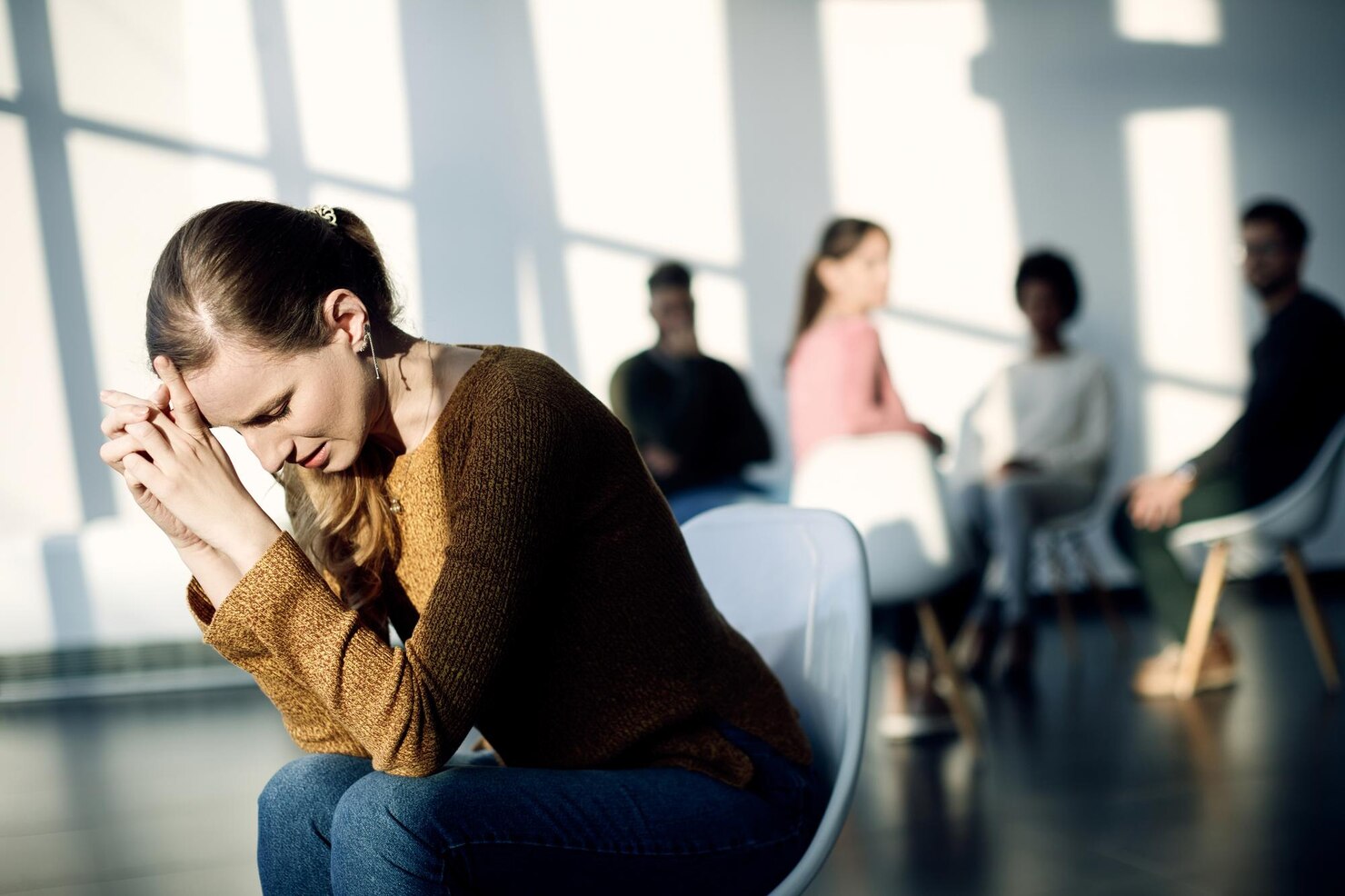3. What is Social Anxiety? What Are the Symptoms of Social Anxiety?- Breaking Free from the Grip of Anxiety.
Whether it’s casual conversations with colleagues or significant events like weddings or public speaking, social interaction is an integral part of our daily lives. For individuals who have anxiety in social situations, these interactions can be extremely frightening and uncomfortable.
Social anxiety, also known as social phobia, is a common mental health condition characterized by an intense fear of social situations. This fear can manifest in a variety of ways, leading to significant distress and avoidance of social interactions. This isn’t just ordinary shyness. Shyness is a normal social discomfort, but social anxiety goes beyond that. It can be far more debilitating. In this blog, we will explore what social anxiety is, understand symptoms, and highlight the importance of seeking professional help from a psychiatrist.
Characteristics of Social Anxiety:
It can manifest in a variety of ways, both physically and emotionally.
Here are some common symptoms:
- Intense anxiety in social situations leads to physical symptoms like sweating, nausea, or dizziness.
- Fear of being judged or negatively evaluated by others, even in harmless situations.
- Worrying about embarrassment, fear of blushing, and stammering in front of others can be an overwhelming concern.
- Avoiding social situations.
- Physical symptoms like blushing, trembling, rapid heart rate, or difficulty speaking.
- Relying on certain behaviors to feel more comfortable in social situations, such as avoiding eye contact, rehearsing conversations, or using alcohol to ease anxiety.
- Worrying excessively about upcoming social events or interactions, sometimes weeks or months in advance.
Causes:
The exact cause is not fully understood, but it is believed to result from a combination of, genetic, environmental, and psychological factors.
The Impact of Social Anxiety:
Social anxiety can significantly impact various aspects of life, including:
Work and Education: Fear of public speaking or avoiding classes can lead to poor academic performance or career enhancement.
Relationships: The fear of judgment can make it difficult to form and maintain healthy relationships.
Social Activities: Avoiding social events and interactions can lead to isolation and loneliness.
Mental health: Social anxiety can co-occur with other mental health conditions like depression.
When to Seek Professional Help
If social anxiety is significantly impacting your daily life, seeking help from a professional is a wise solution. A psychiatrist can provide comprehensive evaluation, diagnose social anxiety, and develop a personalized treatment plan.
Here are some signs that professional help might be needed:
- Symptoms interfere with daily activities.
- Social anxiety is causing significant distress.
- Self-help strategies are not effective.
Treatment Options for Social Anxiety:
Cognitive Behavioral Therapy (CBT):
CBT helps individuals identify and change negative thought patterns that contribute to anxiety.
Exposure Therapy:
This therapy gradually exposes individuals to feared social situations in a safe and controlled environment.
Medication:
In some cases, medication may help manage anxiety symptoms.
Short Story:
Every day, Alex was anxious about going to a nearby cafe at his office. The thought of ordering coffee felt overwhelming. His heart raced, his palm sweat, and he often turned away, pretending he wasn’t thirsty.
One day, he decided to take a simple step. “One Cappuccino please,” he whispered. The owner of the coffee shop smiled warmly and said, “Coming right up for your coffee, sir!”. Relief washed over him.
The next day, he added a “thank you.” Over weeks, Alex became a regular customer, greeted by name.
Each small victory reminded him that fear doesn’t define him. One step at a time, he found courage in the ordinary.
Take the First Step Towards Overcoming Social Anxiety
Living with social anxiety can be challenging, but it’s important to remember that help is available. Don’t let social anxiety control your life. Take the first step towards a more confident and fulfilling life by visiting a psychiatrist in Nepal. Reach out to Dr. Kenison Shrestha’s MindCare Clinic today and discover the benefits of professional mental health services. Your journey to overcoming social anxiety and reclaiming your life begins now.

